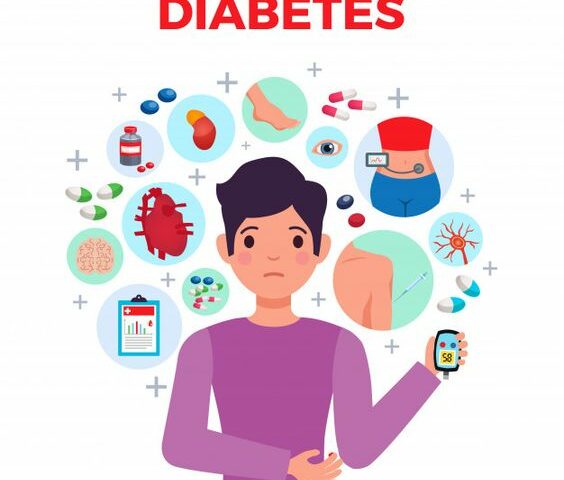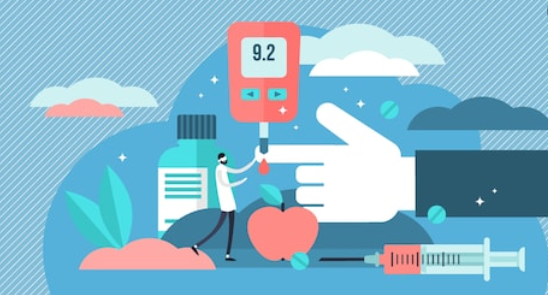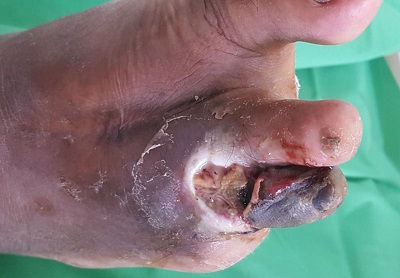
Relationship between Healthy and Unhealthy Obesity types and occurrence of Hypertension.
May 14, 2022
Reducing recreational screen media use should be a health priority to promote physical well-being and creative behaviour
June 6, 2022What is the role of contraceptive pill in reducing the risk of type 2 diabetes in women with polycystic ovary syndrome?
Reviewer: Dr. Abid
A hormonal disorder called ‘Polycystic ovary syndrome’ (PCOS) is very common among women of reproductive age. Some of the common signs and symptoms of PCOS may include; irregular or missed periods, ovaries (a female reproductive organ) may develop small cysts or fluid filled sacs, infertility, excess or unwanted hair growth called ‘hirsutism’ on the face or body, oily skin and acne, scalp hair loss and weight gain etc.
Women suffering through PCOS have abnormal amount of ‘androgens’, the male sex hormones in blood; androgens are usually present in smaller amounts in women. Women with PCOS often struggle with weight gain and insulin resistance; i.e. the cells in their body are less responsive to ‘insulin’ which is a hormone or chemical produced by an organ called pancreas. Insulin helps regulate the blood sugar levels and helps the body to absorb glucose or sugar into the cells where it is required as fuel or energy. This leads to constant high blood sugar levels; which causes body to make more insulin which in turn causes the body to make more androgens. The androgens further cause increase in insulin levels, thus the body goes through a vicious cycle of hormonal imbalances.
Moreover, women with PCOS are at higher risk of developing serious health conditions such as type 2 diabetes (a chronic health condition in which the body is unable to regulate and utilize sugar or glucose as fuel); pre-diabetes (the health condition in which the blood sugar levels are higher than normal but not high enough to be diagnosed as diabetes but in future will lead to diabetes); high blood pressure, infertility, and cardiovascular disease etc.
Studies at University of Birmingham assess the risk of developing type 2 diabetes in women with PCOS and its prevention through use of oral contraceptives
A team of researchers at University of Birmingham have conducted two studies; one of the studies was conducted with an objective to identify and assess risk of developing type 2 diabetes and pre-diabetes in women with PCOS; the second study was designed to investigate the impact of the use of combined oral contraceptive, referred to as ‘the pill’ (which is given to improve the menstrual regularity) on the risk of developing type 2 diabetes and pre-diabetes in women with PCOS.
[Combined oral contraceptives are the medications used for birth control and contain oestrogen and progestin; the female sex hormones.]
The first study included 64,051 women with PCOS through UK patients GP records; and 123,545 women without PCOS. These two groups were studied and compared to analyse the risk of developing type 2 diabetes and pre-diabetes. It was observed through the study that women with PCOS were twice at risk of developing type 2 diabetes or pre-diabetes when compared to those without PCOS. Furthermore, the scientists also identified hirsutism (excessive hair growth), which is a clinical sign indicating high androgen levels; as a significant risk factor for type 2 diabetes and pre-diabetes among women with PCOS.
The second study was conducted to further investigate the impact of ‘the pill’ on type 2 diabetes or pre-diabetes and it included 4,814 women with PCOS as participants.
Interestingly, the study revealed that the use of combined oral contraceptives reduced the risk of developing type 2 diabetes and pre-diabetes in women with PCOS by 26%.
How the pill reduces the risk of diabetes?
The researchers hypothesized that ‘the pill’ reduces the risk of diabetes by dampening the action of androgens. The pill contains oestrogens which increase a protein in the blood called sex hormone-binding globin (SHBG). SHBG binds androgens and thereby renders them inactive. As the pill is taken, SHBG increases and this decreases the amount of unbound active androgens which consequently lower their impact on insulin and diabetes risk.
The scientists claim that their research made them able to provide new evidence from a very large population-based study that there is a potential treatment option, the ‘combined oral contraceptives’ to prevent this very serious health risk. Their data also highlights that normal weight women with PCOS were also at increased risk of type 2 diabetes and pre-diabetes.
The researchers emphasized that with one in ten women living with PCOS, which is a life-long metabolic disorder, it is incredibly important that they find ways of reducing its associated health risks.
Reference:
Contraceptive pill can reduce type 2 diabetes risk in women with polycystic ovary syndrome
https://www.sciencedaily.com/releases/2021/10/211015094730.htm






